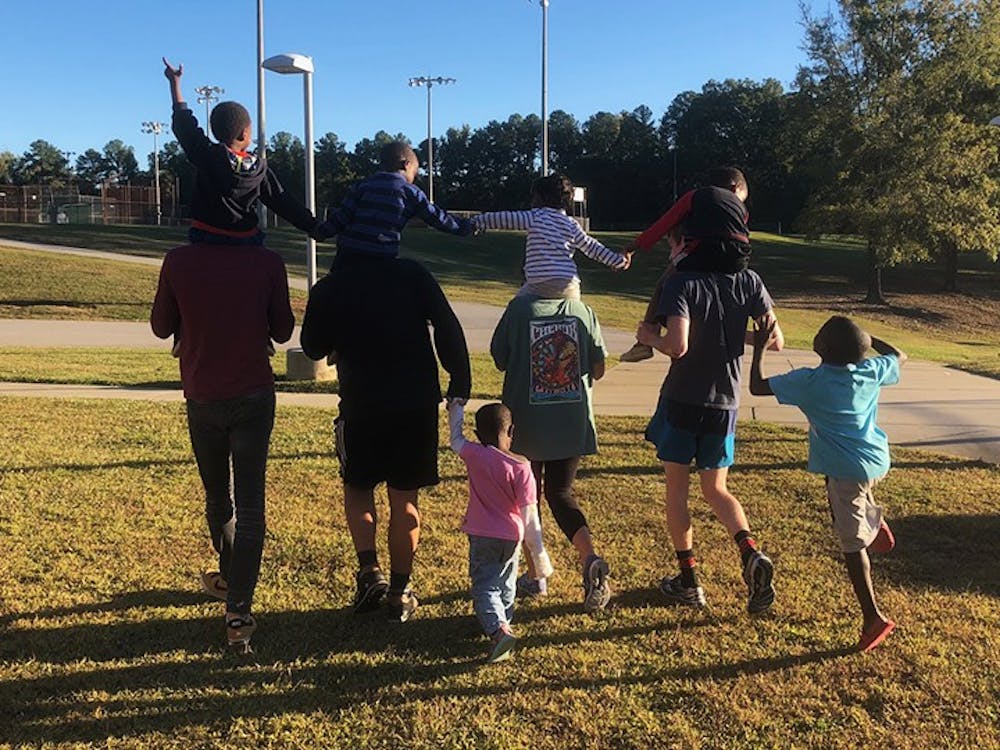The USC organization Gamecocks Aiding Refugees in Columbia (GARC) offers virtual tutoring services to the refugee community and is beginning cultural and educational awareness training among its members.
According to co-presidents Abby de Arellano and Maggie Winters, COVID-19 precautions has allowed GARC to re-evaluate its goals for the year.
“We’ve really used COVID as an opportunity to try and find a silver lining,” de Arellano, a fourth-year psychology and global studies student, said. “Like let’s take a moment while we are trying to figure out all of the virtual tutoring to make sure our members are educated and are really able to effectively serve this population."
GARC has begun including educational awareness sessions in its meetings, hosting guest speakers on cultural competence and effective tutoring methods.
According to Vivian Ho, GARC vice president of marketing and third-year biology student, since COVID-19, the organization has "been able to strengthen the community" through these meetings.
Since the majority of the refugees the organization works with are from Myanmar and the Democratic Republic of the Congo, during meetings members discuss the countries' cultures so members "can make sure to be respectful" when they are interacting with the refugees, Ho said.
Recently, GARC hosted a supply drive for Lutheran Services, a resettlement agency, collecting donations of shampoo, dish soap, toothpaste and hand sanitizer. Although supplies are no longer being collected, GARC is still accepting monetary donations and has raised about $60 as of March 16, according to Winters.
The organization also started fundraising for the Carolina Survivor Clinic — an organization dedicated to administering holistic care to the refugee community in collaboration with the USC School of Medicine — and has raised about $500 a semester according to de Arellano.
GARC was always focused on providing tutoring and support services to the local refugee community through its partnership with the Carolina Survivor Clinic.
“We’re trying to supplement what the schools are already doing with their ESL programs,” co-president Maggie Winters, a fourth-year public health student, said. “Their [refugee students] drop-out rates overall in the United States are alarmingly high, and we’re just trying to combat that.”
Through the Carolina Survivor Clinic, volunteers are matched with families based on their applications, which include their availability and any preferences they have for tutoring. Groups of two to three volunteers work as a unit to serve the educational needs of one family, de Arellano said.
“It's nice, you have a unit of people, like other USC students to talk to and kind of like strategize and plan how you can best serve this family that you have been paired with,” de Arellano said.
Before COVID-19, volunteers would typically meet families in their homes to offer tutoring services, which included educational tutoring for school-aged children and assistance in speaking English for adults.
"Pre-COVID, when we were doing in-person tutoring, we would actually go over to their houses," Ho said. "My family, once we were done with our sessions, would always offer us food and snacks for the drive home, so that was always sweet of them.”
Now, volunteers meet with families online.
De Arellano said that the switch to virtual has brought challenges because “working with a language barrier and different technological capabilities" online can be difficult.
Still, GARC members are able to meet regularly with the families they are matched with and have similar experiences to in-person tutoring over Zoom.
"Even now, during COVID, when we’re doing virtual tutoring, I still really enjoy talking with them," Ho said. "The boys that I’m tutoring are super sweet and precious and one of them was telling me that he wanted me to tutor him forever."
Winters and de Arellano are currently working with professor Breanne Grace to set up a website that provides information about the refugee community in Columbia and contains training guides for the organization.
Winters said she hopes to create “something concrete" that "the future of this organization can look to and use as a resource when inviting new members."

